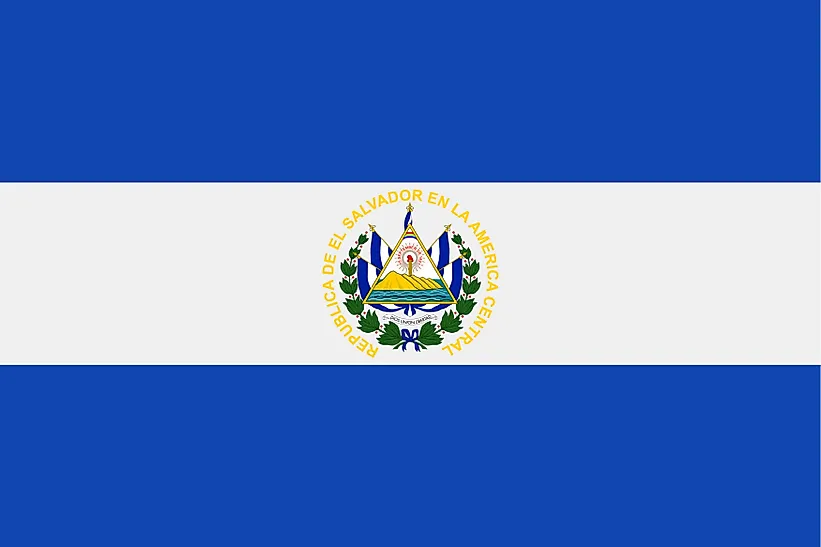
El Salvador
| Continent | Americas |
| Capital | San Salvador |
| Population | 6,156,670 |
| GDP | $54.79 Billion |
| GDP per Capita | $8,900 |
| Dialing Code | +503 |
| ISO Code (2-letter) | SV |
| ISO Code (3-letter) | SLV |
El Salvador Landscapes






About El Salvador
Welcome to El Salvador, Central America’s smallest yet most densely populated country. With approximately 6.5 million people occupying 21,041 square kilometers, El Salvador combines volcanic landscapes with Pacific coastline, creating a nation known for its natural beauty, coffee production, and resilient spirit.
Geographic Features and Natural Beauty
El Salvador’s geography is characterized by volcanic mountain ranges, with over 20 volcanoes dotting the landscape, including the active Santa Ana Volcano. The country features two parallel mountain ranges running east-west, creating a central plateau where most of the population lives.
The Pacific coastline stretches for 307 kilometers, offering world-class surfing spots and beautiful beaches. The country’s numerous lakes, including Lake Ilopango (a volcanic crater lake), provide scenic beauty and recreational opportunities.
El Salvador’s tropical climate supports diverse ecosystems, from cloud forests in the highlands to mangrove swamps along the coast. The country’s location in the Pacific Ring of Fire creates dramatic landscapes and fertile volcanic soil ideal for coffee cultivation.
Cultural Heritage and Traditions
Salvadoran culture reflects indigenous heritage blended with Spanish colonial influences. Traditional arts include distinctive handicrafts, particularly pottery and textiles, while the country’s archaeological sites like Joya de Cerén (the “Pompeii of the Americas”) preserve ancient Maya daily life.
The cuisine centers around pupusas, the national dish, along with other specialties like yuca frita and quesadilla salvadoreña. Music and dance traditions combine indigenous, Spanish, and African influences, particularly evident in traditional folk dances.
Religious traditions, especially Catholic festivals, play important roles in cultural life, while the country’s literary tradition includes notable figures like Roque Dalton.
Historical Journey
El Salvador’s history spans from pre-Columbian Maya settlements through Spanish colonization to independence in 1821. The country experienced significant social and political changes in the 20th century, including a civil war from 1979 to 1992.
Recent decades have seen efforts toward reconciliation and development, with the country making strides in education, healthcare, and economic diversification. The adoption of the U.S. dollar as currency in 2001 brought monetary stability.
Modern Economic Landscape
Today’s El Salvador has a diverse economy based on services, manufacturing, and agriculture. The country is known for its high-quality coffee production, while remittances from Salvadorans abroad contribute significantly to the economy.
Recent initiatives include becoming the first country to adopt Bitcoin as legal tender and investments in technology and infrastructure. The country’s strategic location and young workforce support its development as a regional business center.
International Relations and Global Position
El Salvador maintains active participation in Central American integration efforts and has developed strong international partnerships. The country’s experience in post-conflict reconciliation provides valuable lessons for other nations.
Did You Know?
• El Salvador is the only Central American country without a Caribbean coastline?
• The country was the first in the world to adopt Bitcoin as legal tender?
• Joya de Cerén is the only known Maya village preserved by volcanic ash?
• El Salvador’s Pacific coast is known as one of the world’s best surfing destinations?
Conclusion
El Salvador represents a remarkable story of resilience and transformation. From its volcanic peaks to its Pacific beaches, from its ancient ruins to its modern cities, El Salvador continues to evolve while preserving its cultural heritage. As it addresses contemporary challenges and opportunities, El Salvador remains committed to innovation and development while maintaining its unique identity as the “Land of Volcanoes.”